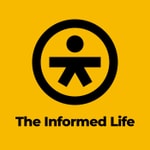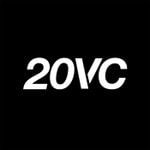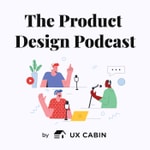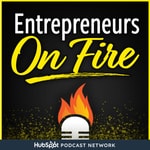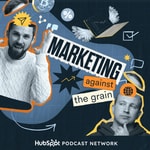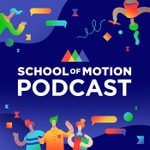RAT.HUB | Dein Startup Podcast – Détails, épisodes et analyse
Détails du podcast
Informations techniques et générales issues du flux RSS du podcast.
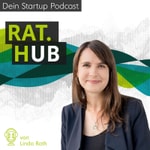
RAT.HUB | Dein Startup Podcast
Linda Rath
Fréquence : 1 épisode/57j. Total Éps: 29

Classements récents
Dernières positions dans les classements Apple Podcasts et Spotify.
Apple Podcasts
🇩🇪 Allemagne - entrepreneurship
26/10/2024#82🇩🇪 Allemagne - entrepreneurship
25/10/2024#48
Spotify
Aucun classement récent disponible
Liens partagés entre épisodes et podcasts
Liens présents dans les descriptions d'épisodes et autres podcasts les utilisant également.
See all- https://miro.com/
187 partages
- https://therebooting.substack.com/
158 partages
- https://tim.blog/
129 partages
Qualité et score du flux RSS
Évaluation technique de la qualité et de la structure du flux RSS.
See allScore global : 68%
Historique des publications
Répartition mensuelle des publications d'épisodes au fil des années.
S3 Ep5: Nick Couldry | LSE
Saison 3 · Épisode 5
mercredi 21 août 2024 • Durée 55:58
His work has been highly influential, I remember his work with Prof. Hepp on the mediated construction of reality was immensely eye-opening for me personally and for the past 10 years, Prof. Couldry increasingly focused on the implications of Big Data when it comes to questions regarding social and political order as well as power relations.
Some Key Takeaways:
- Professor Nick Couldry discusses similarities between data colonialism to historical colonialism by highlighting that our personal data is exploited (by Big Tech) similarly to how colonial powers exploited new lands.
- Data that is extracted from us, can be used against us, will be used to judge us, will be used to categorize us.
- Almost every aspect of human life is being datafied and therefore open to business opportunities. This leads to asymmetrical power relations that we collectively need to question.
- Generative AI can, if we let it, redefine what knowledge actually means, who our experts are and who has access to that knowledge.
- We need to be careful of "civilizing narratives" that basically justify data extractions.
- We talk about methods of resistance, e.g. exposing biases in AI, collective approaches like getting off of social media to talk, etc.
- entrepreneurs and students (and everyone else too) need to critically reexamine their use of AI and data technologies because WE can redesign our society.
Further Links:
- Interview with Nick Couldry, conducted by Thomas Bächle
- Data Grab: The New Colonialism of Big Tech and How to Fight It
- The Cost of Connection
- The Mediated Construction of Reality
If you have any questions or want to share some thoughts, feel free to contact me via Twitter @Lynda420. I am your host Linda Rath and I am looking forward to connecting with you in my next episode.
This episode is brought to you by Media Tech Hub Potsdam. It is one of 12 digital hubs in Germany, initiated by the Federal Ministry of Economics and Energy – and the only one with a focus on MediaTech. it encompasses a working space, an accelerator and an annual conference and i highly recommend you check it out if you want to start a business and look for networking opportunities. I am an entrepreneur myself and our startup Vragments used to be located at the media tech lab in Potsdam.
Credits:
- Music/Jingles by Mara Niese
- Produced by Linda Rath
- Photo kindly provided by Nick Couldry
- Photo Linda Rath by Stefan Walter for Causalux Fotos
- Podcast Cover by Nicole Koppe
S3 Ep4: Jodi Nelson-Tabor & Adrian Weber | Virtual Production
Saison 3 · Épisode 4
mardi 25 juin 2024 • Durée 24:58
Here is Jodi's keynote at the Medienforum:
https://www.youtube.com/watch?v=wQfTiDfYOE0
Here is Adrian's keynote at the Medienforum:
https://www.youtube.com/watch?v=RcBG0g8ds3U
Before they went on stage, I was able to interview BOTH in the podcast bus
located outside the event. The interview was filmed, if you prefer video, check out this YouTube link.
Otherwise, enjoy this episode here.
Welcome to the international edition of my podcast Rath Up. I am your host Linda Rath and I interview entrepreneurs who I admire and look up to. I want to know more about their business AND .... What drives them? What inspires them? I believe you need so much more than just talent and skills to be successful in business. So, let's find out what secrets our entrepreneurs will reveal to us.
If you have any questions or want to share some thoughts, feel free to contact me via Twitter @Lynda420. I am your host Linda Rath and I am looking forward to connecting with you in my next episode.
Credits:
- Produced by Cornelia Kanter for HSMW Medienforum
- Production Setup kindly provided by the Podcast Bus (see above)
- Photo Linda Rath by Stefan Walter for Causalux Fotos
- Podcast Cover by Nicole Koppe
- Music/Jingles by Mara Niese
S2 Ep7: Ellen Heinrichs | Bonn Institute
Saison 2 · Épisode 7
lundi 6 juin 2022 • Durée 57:28
Some key takeaways:
- constructive journalism has three components:
- it is solution-oriented which means that throughout the journalistic process, a critical look at solutions is taken
- it enriches journalism with more perspectives - it is supposed to be more nuanced and therefore less polarizing
- journalism contributes to constructive debates in society by e.g. asking different questions that trigger vivid dialog
- we need to add more skills into our journalistic toolbox
- critical thinking doesn't always mean negative thinking
- potential solutions can activate resources that are already there - solutions-focus can be more helpful for the future whereas negative talk can create only problems
- systemic thinking - typical storytelling of focusing on conflict and having a hero need to be questioned
- we need to tell different stories that do not stress people but resonate with their resources. journalism should activate them and help them think about what they can actually do
- journalism should be a service profession - providing public with information they need
- journalism is not just about telling stories but also listening to what's relevant
- Bonn Institute offers workshops, conduct studies and brings attention to the topic of constructive journalism at conferences and events
More links:
Welcome to the international edition of my podcast Rath Up. I am your host Linda Rath and I interview entrepreneurs who I admire and look up to. I want to know more about their business AND .... What drives them? What inspires them? I believe you need so much more than just talent and skills to be successful in business. So, let's find out what secrets our entrepreneurs will reveal to us.
If you have any questions or want to share some thoughts, feel free to contact me via Twitter @Lynda420. I am your host Linda Rath and I am looking forward to connecting with you in my next episode.
This episode is brought to you by Media Tech Hub Potsdam. It is one of 12 digital hubs in Germany, initiated by the Federal Ministry of Economics and Energy – and the only one with a focus on MediaTech. it encompasses a working space, an accelerator and an annual conference and i highly recommend you check it out if you want to start a business and look for networking opportunities. I am an entrepreneur myself and our startup Vragments used to be located at the media tech lab in Potsdam.
Credits:
- Produced by Linda Rath
- Photo by Ellen Heinrichs
- Photo Linda Rath by Stefan Walter for Causalux Fotos
- Podcast Cover by Nicole Koppe
- Episode Cover Art by Stephan Gensch
- Music/Jingles by Mara Niese
S2 Ep6: Binoy Prabhakar | Moneycontrol
Saison 2 · Épisode 6
jeudi 2 juin 2022 • Durée 54:40
Some key takeaways:
- Moneycontrol is the flagship but there are other products Binoy is working on
- he is working on a live streaming service which is highly challenging,
- Binoy leads a team of 100 journalist and is planning on hiring more journalists
- editorial team works very closely with the tech and product team (how to monetize products and how to do events) as well as the audience engagement team (they do so to understand consumer complaints)
- very agile understanding of a continuous innovation process, always looking for ways to develop new products
- diversifying revenue streams is key. you can monetize e.g. through
- ads
- branded content
- subscription
- newsletter is a lucrative product - new experiments with what time to send it out is very helpful
- the collaboration process is very transparent and structured - easy to use tools (Slack, Zoom etc.),
- journalists should be good human beings
- Binoy tries to always create a lot of warmth in the newsroom (focusing on little things, helping each other out)
- empathy is very important
- leaders should be hands-on and obsessed about their product
- while building the team, Binoy started with people having financial skills and then included skilled journalists
More links:
- Moneycontrol
- The Reboot
- Monocle
- Axios Media Trends
- Jeremy Caplan's newsletter
- Beautiful AI
- Instapaper
If you have any questions or want to share some thoughts, feel free to contact me via Twitter @Lynda420. I am your host Linda Rath and I am looking forward to connecting with you in my next episode.
This episode is brought to you by Media Tech Hub Potsdam. It is one of 12 digital hubs in Germany, initiated by the Federal Ministry of Economics and Energy – and the only one with a focus on MediaTech. it encompasses a working space, an accelerator and an annual conference and i highly recommend you check it out if you want to start a business and look for networking opportunities. I am an entrepreneur myself and our startup Vragments used to be located at the media tech lab in Potsdam.
Credits:
- Produced by Linda Rath
- Photo by Binoy Prabhakar
- Photo Linda Rath by Stefan Walter for Causalux Fotos
- Podcast Cover by Nicole Koppe
- Episode Cover Art by Stephan Gensch
- Music/Jingles by Mara Niese
S2 Ep5: Julia Hildebrand | beabee
Saison 2 · Épisode 5
mercredi 1 juin 2022 • Durée 59:47
Julia's expectations of community-journalism is high: “There is so much more potential for civic participation. Community-Journalism for me is a way, to unleash that potential and empower people to improve their own environment.”
I am very happy that she agreed to do this interview. We discussed civic participation and in how far journalism can or should foster that.
Some key takeaways:
- beabee is about allowing more people to start local organizations that have journalistic practices and organizing communities at their focus
- it is all about supporting the smallest newsrooms
- building a community means having to have patience.
- building a community is hard and hands-on work: it goes beyond just providing stories. It encompasses working together, organizing workshops and being open to co-creation
- journalism can help increase engagement in local communities and tracking impact can be done by looking at voting turnouts
- it is about creating safe public digital spaces and owning the infrastructure, owning the data
- we need more players that are not driven by profit
- team-building and motivation techniques include
- taking time - it is imperative that everyone knows what the goals are - making sure that everyone know what's going on
- stand-ups in the morning - having that little connection in the morning including a ritual "reasons to be cheerful" - sharing sth more personal, sth positive
- invest in bringing people together
More links: Beabe Correctiv Bristol Cable Rheinhausen Community Project Campfire Festival Barcamp Bottropp
Welcome to the international edition of my podcast Rath Up. I am your host Linda Rath and I interview entrepreneurs who I admire and look up to. I want to know more about their business AND .... What drives them? What inspires them? I believe you need so much more than just talent and skills to be successful in business. So, let's find out what secrets our entrepreneurs will reveal to us.
If you have any questions or want to share some thoughts, feel free to contact me via Twitter @Lynda420. I am your host Linda Rath and I am looking forward to connecting with you in my next episode.
This episode is brought to you by Media Tech Hub Potsdam. It is one of 12 digital hubs in Germany, initiated by the Federal Ministry of Economics and Energy – and the only one with a focus on MediaTech. it encompasses a working space, an accelerator and an annual conference and i highly recommend you check it out if you want to start a business and look for networking opportunities. I am an entrepreneur myself and our startup Vragments used to be located at the media tech lab in Potsdam.
Credits:
- Produced by Linda Rath
- Photo by Julia Hildebrand
- Photo Linda Rath by Stefan Walter for Causalux Fotos
- Podcast Cover by Nicole Koppe
- Episode Cover Art by Stephan Gensch
- Music/Jingles by Mara Niese
S2 Ep4: Mariana Santos | Chicas Poderosas
Saison 2 · Épisode 4
mercredi 20 avril 2022 • Durée 45:23
Mariana started this community in 2013 while she was an ICFJ fellow. Today she runs it full-time with her team and a board of directors and experts in the different areas of journalism, entrepreneurship, business, innovation and design thinking. Mariana was also a JSK Knight fellow at Stanford in 2015 and a Knight International Journalism Fellow back in 2013-14 working all across Latin America in major newsrooms and with independent journalists.
I met her many moons ago at Stanford where she organized a week-long workshop/conference evolving around entrepreneuship and innovation in journalism. Years later, she invited me to Lisbon to talk about immersive journalism and again, she was able to bring together people from all over the world creating a save space to experiment and innovate. She says about herself that she is a "Portuguese girl who wants to change the world, and is working on it right now."
Some key takeaways:
- The drive of chicas is the magic of being together, feeling the energy of each other ... so the pandemic has been extremely challenging.
- Being a chica means believing in yourself. it is a mindset
- "We need to find role models. We should be listened to."
- "We've been very passionate about changing the reality for women."
- "I thought about quitting."
- "I wanna be there for my team, I wanna hug them."
- "My energy became my currency."
- "We want to bring more women into technology."
- Great team exercise: Try to do the tasks of your colleagues. We need to see each other as team mates and understand what we each of us are doing.
- Important question: How do you establish a culture of trust?
- To do projects, you need: talent, time, and money.
- Mariana is living in Portugal, running a business in the US that has actions in Latin America.
- i am not a business woman naturally, but i became one.
- No toxic people, no toxic environments.
Mariana's book recommendations:
Welcome to the international edition of my podcast Rath Up. I am your host Linda Rath and I interview entrepreneurs who I admire and look up to. I want to know more about their business AND .... What drives them? What inspires them? I believe you need so much more than just talent and skills to be successful in business. So, let's find out what secrets our entrepreneurs will reveal to us.
If you have any questions or want to share some thoughts, feel free to contact me via Twitter @Lynda420. I am your host Linda Rath and I am looking forward to connecting with you in my next episode.
This episode is brought to you by Media Tech Hub Potsdam. It is one of 12 digital hubs in Germany, initiated by the Federal Ministry of Economics and Energy – and the only one with a focus on MediaTech. it encompasses a working space, an accelerator and an annual conference and i highly recommend you check it out if you want to start a business and look for networking opportunities. I am an entrepreneur myself and our startup Vragments used to be located at the media tech lab in Potsdam.
Credits:
- Produced by Linda Rath
- Photo Mariana Santos
- Photo Linda Rath by Stefan Walter for Causalux Fotos
- Podcast Cover by Nicole Koppe
- Episode Cover Art by Stephan Gensch
- Music/Jingles by Mara Niese
S2 Ep3: Mercy Abang | Journalist
Saison 2 · Épisode 3
vendredi 14 janvier 2022 • Durée 41:07
In this episode, we talk about the Twitter ban in Nigeria and what this means for the civic online space and journalism, we cover the challenges of being an entrepreneur and we discuss in how far journalists should embrace technology. She gives us a glimpse of what's important to her and how she prioritizes her work and her life.
Some key takeaways:
- Social media platforms help journalists with marketing and distribution and should be used accordingly. Having the right content is simply not enough.
- However, journalists should not just focus on one platform. The more you increase the visibility on other platforms the better and when one falls flat (as we saw in Nigeria), you can rely on others. Diversify your distribution strategy.
- Don't underestimate the importance of VPN and other technological opportunities to ensure free speech.
- Mercy decided to go back to business school. Why? We have to start looking at money. as a journalist, you have to know business. As a journalist, you need an entrepreneurial mindset.
- Content creation is more than a buzzword for gen z.
- Platforms like facebook and Google take a new role/position in the media ecosystem and changes how individual journalists can position themselves within that ecosystem.
- We have no idea how the future of the media look like.
- Journalists should embrace innovation and not fight it. Journalists should adapt to innovation and not fight it.
- Everybody has become a journalist, everyobody has become a storyteller, everyobody has become a content creator, everybody has become a broadcaster.
- Mercy expects more journalists to think outside the box and say ... the world is changing.
More links:
- Mercy Abang
- Mercy Abang is one of two new managing directors at Hostwriter
- Mercy Abang on Al Jazeera's Listening Post
- Tim Ferris Blog
- Christiane Amanpour
Welcome to the international edition of my podcast Rath.hub. I am your host Linda Rath and I interview entrepreneurs who I admire and look up to. I want to know more about their business AND: What drives them? What inspires them? I believe you need so much more than just talent and skills to be successful in business. So, let's find out what secrets our entrepreneurs will reveal to us.
If you have any questions or want to share some thoughts, feel free to contact me via Twitter @Lynda420. I am your host Linda Rath and I am looking forward to connecting with you in my next episode.
This episode is brought to you by Media Tech Hub Potsdam. It is one of 12 digital hubs in Germany, initiated by the Federal Ministry of Economics and Energy – and the only one with a focus on MediaTech. it encompasses a working space, an accelerator and an annual conference and i highly recommend you check it out if you want to start a business and look for networking opportunities. I am an entrepreneur myself and our startup Vragments used to be located at the media tech lab in Potsdam.
Credits:
- Produced by Linda Rath
- Photo Mercy Abang by Mercy Abang
- Photo Linda Rath by Stefan Walter for Causalux Fotos
- Podcast Cover by Nicole Koppe
- Episode Cover Art by Stephan Gensch
- Music/Jingles by Mara Niese
S2 Ep2: Gayatri Parameswaran | NowHere Media
Saison 2 · Épisode 2
lundi 22 novembre 2021 • Durée 48:13
Gayatri gives a raw account of the true hustle that is being a foundHER. Juggling one two three projects simultaneously, having to pitch ideas to potential investors and managing teams - all while keeping her creative juices flowing. She is a true warrior and I applaud her resilience.
When I met Gayatri, we co-organized a VR pop up studio in Berlin, we also co-participated at a panel at the Perugia journalism festival and she gave the keynote at one of the VR conferences i co-organized with Frederic Dubois. I've been able to explore her work over the years and I am honored that she is here with me today.
Some key takeaways:
- Keeping a language alive means keeping a culture alive. Kusunda is a VR experience that lets you explore the world of the Kusunda language.
- "I am very inspired by reality ... We let ourselves be guided by reality and people in real life ... There is something special to immersive technologies and what it can do for storytelling."
- Currently, Nowhere Media is doing research about how stories about intangible cultural heritage affects people when they are told in different media/formats.
- "There is something magical over there that's happening inside the VR headset."
- Kusunda started with a core team. Then they received seed funding for the prototype. Step by step, additional funding came in to start imagining what an extended version of the story could look like.
- The project had some real life impact, including a language revitalization program.
Gayatri's book recommendations:
More links:
- Nowhere Media was featured on Voices of VR
- Another moving VR experience by Nowhere Media: Home After War
Welcome to the international edition of my podcast RAT.HUB. I am your host Linda Rath and I interview entrepreneurs who I admire and look up to. I want to know more about their business AND .... What drives them? What inspires them? I believe you need so much more than just talent and skills to be successful in business. So, let's find out what secrets our entrepreneurs will reveal to us.
If you have any questions or want to share some thoughts, feel free to contact me via Twitter @Lynda420. I am your host Linda Rath and I am looking forward to connecting with you in my next episode.
This episode is brought to you by Media Tech Hub Potsdam. It is one of 12 digital hubs in Germany, initiated by the Federal Ministry of Economics and Energy – and the only one with a focus on MediaTech. it encompasses a working space, an accelerator and an annual conference and i highly recommend you check it out if you want to start a business and look for networking opportunities. I am an entrepreneur myself and our startup Vragments used to be located at the media tech lab in Potsdam.
Credits:
- Produced by Linda Rath
- Photo Gayatri Parameswaran by Gayatri Parameswaran
- Photo Linda Rath by Stefan Walter for Causalux Fotos
- Podcast Cover by Nicole Koppe
- Episode Cover Art by Stephan Gensch
- Music/Jingles by Mara Niese
S2 Ep1: Aela Callan | head set
Saison 2 · Épisode 1
lundi 22 novembre 2021 • Durée 01:01:30
When I met Aela more than five years ago, we regularly discussed how virtual reality is going to change journalism and how it can help tell better stories. How times have changed. I remember Aela always went to all the international conferences to see the latest and best VR experiences and she's had a very clear understanding of what immersive technologies can do for journalism. i am beyond excited to speak with her. Some key takeaways:
- head set is an immersive technology company that offers virtual reality training for people who work in high-risk environments, e.g. journalists, humanitarians and diplomats. head set develops immersive scenarios that help prepare physically and emotionally for what happens when you are in the midst of a big story.
- She understands herself as a journalist first rather than an entrepreneur, so setting up a sales process has been something completely outside of her comfort zone.
- Aela underlines: "Journalists are on a 24/7 frontline now, whether it's physically covering unrest in the streets because of Covid protests which is very relevant to our scenario or on the frontlines of Twitter with the cyberbullying and harassment that goes on now. We have a culture of many different parties attacking the media."
- VR training sessions are different from traditional training sessions - "Journalists find it more realistic and more emotionally impactful than scenarios played out by actors."
- With regards to her company, she states "I don't think you ever finish product development."
- She tells us how she set up her company team and highlights "recruitment is difficult [...] Knowing what you need is half of the battle. But then being able to ask helps with attracting the right talent to your team and being able to keep them with interesting work and interesting projects."
- Some management tips for a digital-first company:
- during the pandemic, she has managed her team via zoom and slack
- regular stand-up meetings help - open for anyone on the team (even if it is not their specific topics being discussed)
- leave quietly at any time is possible
- every day of the week is devoted to something: product development day, dev days, co-founder meetings
- regular lunch roulettes
- Friday open door coffee for non-work related subjects
- read-outs from every meeting with specific action items is imperative
- As a manager, you want to be checking in, not checking up.
- Some tools to use
- Canva
- Miro
- Trello
- Keybase
- Slack
- Google Drive
- "An exit doesn't have to look like what investors say an exit is"
More links:
- head set
- Virtual Human Interaction Lab at Stanford University
- Uncanny Valley
- UK Research and Innovation
- Prof. Albert (Skip) Rizzo - here is one of his talks: VR Exposure Therapy for PTSD
- Bethnal Green Ventures
- Fire Panda
- I am Rohingya
Welcome to the international edition of my podcast RAT.HUB. I am your host Linda Rath and I interview entrepreneurs who I admire and look up to. I want to know more about their business AND: What drives them? What inspires them? I believe you need so much more than just talent and skills to be successful in business. So, let's find out what secrets our entrepreneurs will reveal to us.
If you have any questions or want to share some thoughts, feel free to contact me via Twitter @Lynda420. I am your host Linda Rath and I am looking forward to connecting with you in my next episode.
This episode is brought to you by Media Tech Hub Potsdam. It is one of 12 digital hubs in Germany, initiated by the Federal Ministry of Economics and Energy – and the only one with a focus on MediaTech. it encompasses a working space, an accelerator and an annual conference and i highly recommend you check it out if you want to start a business and look for networking opportunities. I am an entrepreneur myself and our startup Vragments used to be located at the media tech lab in Potsdam.
Credits:
- Produced by Linda Rath
- Photo Aela Callan by Aela Callan
- Photo Linda Rath by Stefan Walter for Causalux Fotos
- Podcast Cover by Nicole Koppe
- Episode Cover Art by Stephan Gensch
- Music/Jingles by Mara Niese
S1 Ep12: Pauline Tillmann | DEINE KORRESPONDENTIN
Saison 1 · Épisode 12
lundi 31 mai 2021 • Durée 01:06:40
Key Takeaways vom Interview mit Pauline:
- Für alle angehenden Auslandskorrespondent*innen: es ist immer gut viel zu reisen! Auch Zeit "Ende 20 Anfang 30" gut, um Erfahrungen zu sammeln, Recherchen zu betreiben und internationales Netzwerk aufzubauen.
- DEINE KORRESPONDENTIN startete mit einer Crowdfunding-Phase auf Startnext - u.a. inspiriert von Paulines Reisen und learnings von Medienunternehmen, die sie besucht hat.
- Im Wesentlichen geht es bei DEINE KORRESPONDENTIN darum, Frauen in den Fokus von Geschichten zu nehmen
- Hier wurde eine Lücke in den Medien ausgemacht
- Finanzierung sollte so diversifiziert wir möglich sein
- z.B. durch Kooperationen, Mitgliedschaften, Direktspenden etc.
- divers ist wichtig, weil man sich nicht auf eine Finanzierungsquelle verlassen sollte. Partnerschaften können beendet werden, Mitglieder können gehen etc.
- Frauenquote in der Führungsebene immer noch sehr gering - strukturelles Problem!
- problematisch für Deine Korrespondentin, weil die Sensibilität für die dort abgebildeten Geschichten häufig fehlt
In der Rubrik #rathschlag gibt Pauline einen essentiellen Tipp für jede*n Entrepreneur*in. In der Rubrik #fragdierath darf ich ihr einen Tipp geben.
Weiterführende Links:
- Pauline Tillmann
- DEINE KORRESPONDENTIN
- DEINE KORRESPONDENTIN auf Steady
- Executive Programm bei CUNY
- Coaching mit "Was mit Medien"
Falls ihr Fragen oder Anregungen habt, schreibt mir einfach via Twitter. Mein Handle ist @Lynda420. Ich bin Linda Rath und wir hören uns in der nächsten Folge wieder.
Dieser Podcast wird unterstützt vom Medieninnovationszentrum Babelsberg (MIZ). Das MIZ fördert innovative Projekte mit Rundfunkbezug und organisiert Veranstaltungen und Vernetzungsangebote für kreative Medienschaffende. Ich war an zwei vom MIZ geförderten Projekten beteiligt und kann deren Angebote nur weiterempfehlen. Wer mehr erfahren möchte, geht zu https://www.miz-babelsberg.de/. Reicht dort eure Idee ein und erhaltet Innovationsförderung für euer Startup.
Der Podcast wird auch vom Media Tech Hub Potsdam unterstützt. Der MediaTech Hub Potsdam bündelt die lokale Expertise von Spezialisten und Visionären und umfasst ein Lab, einen Accelerator und eine jährliche Konferenz. Wir haben mit unserem Startup Vragments Büroräume im Lab in der Medienstadt Babelsberg gemietet und ich kann auch hier ihre Angebote weiterempfehlen. Weitere Informationen findet ihr unter https://www.mth-potsdam.de/.
Credits:
- Produziert von Linda Rath
- Foto Pauline Tillman: Mit freundlicher Erlaubnis von Pauline Tillmann
- Foto Linda Rath: Stefan Walter für Causalux Fotos
- Podcast Cover: Nicole Koppe
- Musik/Jingles: Mara Niese

